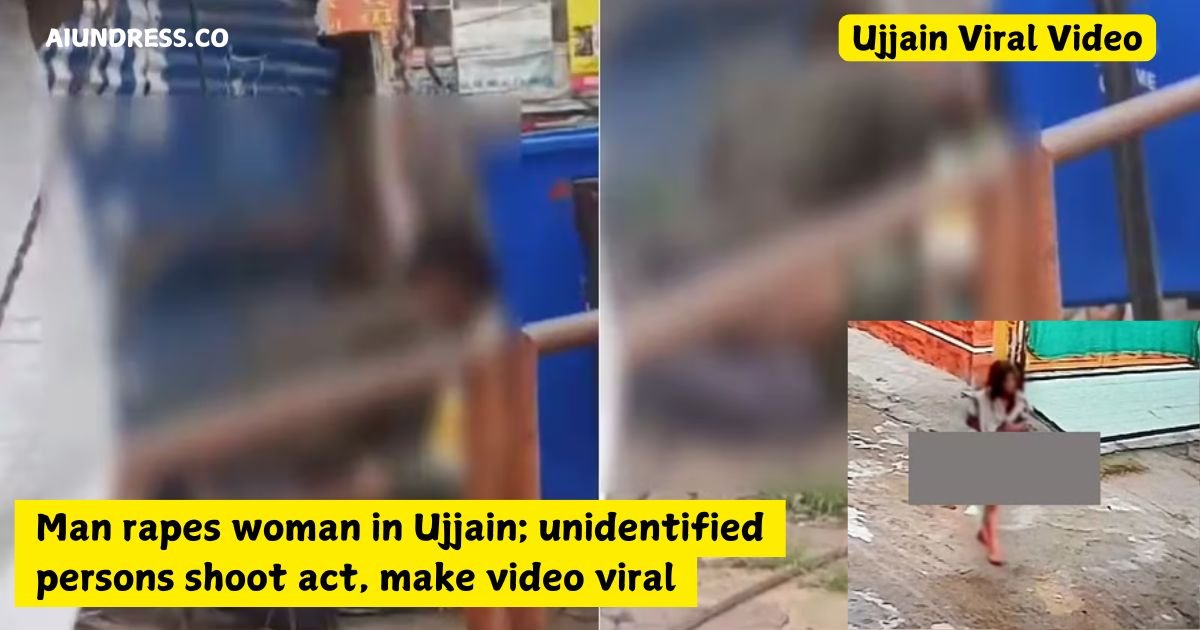A disturbing incident in Ujjain, Madhya Pradesh has sparked outrage and raised serious questions about public safety and bystander responsibility. On Wednesday, September 3, 2024, a woman was sexually assaulted in broad daylight on a busy street, while onlookers filmed the incident instead of intervening or calling for help.
The Incident
According to police reports, the assault took place in the Koyla Phatak area, one of the busiest intersections in Ujjain. The victim, described as a woman who collects and sells scrap for a living, was approached by a man named Lokesh. Under the guise of a marriage proposal, Lokesh convinced the woman to accompany him.
City Superintendent of Police (CSP) Om Prakash Mishra provided details of the events that followed:
- Lokesh coerced the woman into consuming alcohol.
- Once the woman was intoxicated, Lokesh took her to a roadside shelter.
- At this location, Lokesh sexually assaulted the woman.
The most troubling aspect of this incident was the response – or lack thereof – from bystanders. Instead of intervening or calling for help, some passersby chose to film the assault on their mobile phones. These videos were later shared on social media platforms, where they quickly went viral.
The Aftermath
Police Response
The Ujjain police took action once they became aware of the incident:
- The viral video helped police locate the survivor.
- The woman was brought to the police station.
- A case was registered based on the survivor’s statement.
- Police reviewed the video footage to identify the accused.
- Lokesh was subsequently arrested.
CSP Mishra stated, “After the woman filed a complaint when the effect of alcohol wore off, Lokesh was arrested.”
Public Reaction
The incident has sparked widespread anger and disbelief among the public. Many have expressed shock not only at the brazen nature of the crime but also at the complete lack of intervention from bystanders. The fact that people chose to film the assault rather than help the victim has led to discussions about moral responsibility and the impact of social media on human behavior.
Political Fallout
The incident has also ignited a political firestorm in Madhya Pradesh. The opposition Congress party has used this case to criticize the ruling Bharatiya Janata Party (BJP) government, claiming it shows a breakdown of law and order in the state.
Madhya Pradesh Congress posted a strong statement on social media platform X (formerly known as Twitter), saying: “Ujjain, the sacred city, is once again shamed. Those in power should either die of shame or resign.”
State Congress Chief Jitu Patwari also weighed in on the issue, tweeting: “Once again, the holy city of Ujjain is tarnished… Rapes are now happening in broad daylight in MP — on open streets. This is only possible when the law and government completely disappear. If this is the situation in the Chief Minister’s hometown, then one can imagine the condition of the rest of the state.”
Broader Implications
This incident raises several important issues that need to be addressed:
1. Public Safety
The fact that such a crime could occur in broad daylight in a busy area of the city raises serious concerns about public safety. It highlights the need for increased police presence and better security measures in public spaces.
2. Bystander Intervention
The lack of intervention from witnesses is a troubling aspect of this case. It brings to light the “bystander effect,” a social psychological phenomenon where individuals are less likely to offer help to a victim when other people are present. This incident underscores the need for public awareness campaigns about the importance of bystander intervention in emergency situations.
3. Responsible Use of Technology
The decision of some bystanders to film the incident rather than help highlights the darker side of our smartphone-centric culture. It raises questions about the ethical use of technology and the need for education on digital citizenship.
4. Women’s Safety
This incident is yet another stark reminder of the ongoing issue of women’s safety in India. It underscores the need for continued efforts to create a safe environment for women in public spaces.
5. Alcohol and Consent
The fact that the accused allegedly forced the victim to consume alcohol before the assault highlights the issue of consent and the use of substances to facilitate sexual assault. This aspect of the case emphasizes the need for education about consent and the dangers of alcohol-facilitated sexual assault.
Legal Aspects
Under Indian law, the accused in this case could face severe penalties:
- Section 376 of the Indian Penal Code deals with rape and carries a minimum sentence of 7 years, which may extend to life imprisonment.
- The use of alcohol to facilitate the crime could be considered an aggravating factor.
- The public nature of the crime and the trauma caused to the victim by the subsequent viral video could also influence sentencing.
Support for the Survivor
In cases of sexual assault, it’s crucial to ensure that survivors receive proper support and care. This includes:
- Medical care and forensic examination
- Psychological support and counseling
- Legal aid and guidance through the judicial process
- Protection from further harassment or intimidation
It’s important that local authorities and support organizations make these services available to the survivor in this case.
Moving Forward
This incident serves as a wake-up call for society on multiple levels. To prevent such incidents in the future and create a safer environment for all citizens, several steps need to be taken:
- Improved Law Enforcement: There’s a need for increased police presence in public areas and quicker response times to emergency calls.
- Public Awareness Campaigns: Educating the public about bystander intervention, the importance of reporting crimes, and how to safely intervene in dangerous situations.
- Women’s Safety Initiatives: Implementing programs specifically designed to make public spaces safer for women, such as better street lighting, women’s helplines, and self-defense training programs.
- Digital Citizenship Education: Schools and colleges should include modules on responsible use of technology, including the ethical implications of sharing sensitive content on social media.
- Stricter Enforcement of Laws: Ensuring that laws against sexual assault are strictly enforced, with swift and certain punishment for offenders.
- Support for Survivors: Improving and expanding support services for survivors of sexual assault, including medical care, counseling, and legal aid.
- Addressing Root Causes: Tackling the underlying societal issues that contribute to violence against women, including gender inequality and harmful stereotypes.
Conclusion
The Ujjain incident is a stark reminder of the challenges that still exist in ensuring public safety and protecting vulnerable members of society. It highlights not only the need for stronger law enforcement but also the crucial role that every citizen plays in creating a safe and just society.
As this case moves through the legal system, it will undoubtedly continue to spark debates about public safety, bystander responsibility, and the impact of technology on human behavior. The hope is that from this tragic incident, positive changes can emerge that will make our communities safer for all.
The incident in Ujjain is not just a failure of law enforcement or government policy; it’s a failure of society as a whole. It calls on each of us to reflect on our responsibilities as citizens and fellow human beings. Only through collective effort and a commitment to change can we hope to prevent such incidents in the future and create a society where everyone feels safe and protected.



